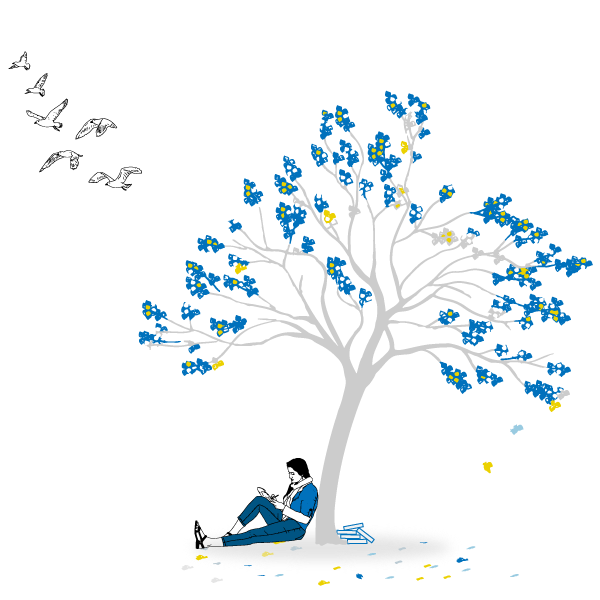Still Sundays
December 12th.
Truth is a rabid dog. Plato on ‘kosmos’. Pythagoreans on ‘Harmonious Principles’. Emily Dickinson on Truth. Ignorance is not a matter of not knowing. Kerouac-‘just a human being.’
If you would like to know what Still Sundays is about, please take a quick gander here and just read the third paragraph. Thanks.
Last night’s midnight drizzle has turned into icy javelins this Sunday morning in New York City. I moved aside all the curtains in my windowfull apartment so as to pretend it was a beautiful morning. That’s what one does on beautiful mornings, right? Walk over to all the windows and slide away the curtains for sunlight. Why do I think that? Did I see it in a cartoon when I was little? Or is it a natural instinct, as my mother says, to pay tribute to warm light. Well today I honor clouds for not everyone worships the sun unless the sun takes a hiatus. Perhaps this creates for an opportunity to collectively call for the sun. Even those who take it for granted, chime in.
There are moments while one is walking in New York City when traffic just disappears.
Poof.
The grid that is Manhattan has infraction of moments where a cross-section of street and avenue do not have a single car in sight: north, south, east, and west. You get to see that Manhattan is a hilly village and the earth is really round, and there is a sky beyond buildings, and the eye can see far. Usually this happens late at night when the City is getting drowsy. But sometimes it happens right in the middle of the day.
I had such a moment this week. I wanted to stand in the middle of the intersection to borrow Time. The split-second was over and cars flew against Time in an imaginary race where Time is not even a participant.
New York City stands on myths and half-truths. A friend from Holland refreshed my recollection this week that Hudson is not really a river but a fiord, whose bed was ground out by glaciers, so technically, an arm of the sea. Yet we will never stop calling it the Hudson River.
Truth is a rabid dog. I don’t think we search for truth. It comes hounding after us for we are impostors.
Someone told me they like what I write because “it is the truth.” I couldn’t even mumble a sound that could have passed for a thank you. Someone had just called me an impostor.
And here is why.
I read two different personal articles (“posts”) this week from two different individuals. I was at a loss for words for one and enraged by the other yet they were about a “similar” experience of “discovery.”
Find compassion for ignorance, self. Self told me to get out of the way. A small troop of thoughts began gathering and I was not prepared. Usually I reach out to my sister or a very trusted friend who sends in his or her army of words to make sense of the chaos in my mind. I can’t just share these thoughts with anyone given, on the surface, they do sound harsh, mean, judgmental and downright brutal. These few people—I am blessed—know me enough to know being judgmental is not my nature and that I have been sucked by the undertow where I am just at a loss for words for witnessing an atrocity—-a creative disingenuousness—I can’t intellectually juxtapose. Usually my sister begins, “Oh yeah? You want to know why that is bothering you? Let me say it for you.” It is not to validate my thoughts or feelings but to hold a mirror to them where I decide yes, that fits, or no, that is not why I am confused.
This time I randomly reached out to a new kindred creative and she replied to my email with a torrent of words that left me stunned. What she had written was the truth. Raw. Skin peeled from third degree burns raw. You couldn’t go near it without fear of how it might burn you.
I went near it. I sat next to it. I re-read her words over and over again.
I knew then that although I agreed with every word she had written, I could not write those words without feeling I was betraying some personal sensibility that is beyond articulation. How do I tell the truth with compassion?
According to Marco Rojas, truth can only be felt in the moment, otherwise we are caught in dreams, memories, a future based on projections from the past. Moreover, the intention behind telling a truth should never be to cause suffering which is not to say that truth doesn’t hurt.
Words of Emily Dickinson came to mind:
Tell all the Truth but tell it slant—
Success in Cirrcuit lies
Too bright for our infirm Delight
The Truth’s superb surprise
As Lightening to the Children eased
With explanation kind
The Truth must dazzle gradually
Or every man be blind—
Did we get “dazzled gradually” in Marco Rojas’s yoga classes or was it lightening that left us blind?
Marco Rojas is intense. The freedom-space he creates is gradual, breath by breath, heating us into expansion so we are almost blinded by crystal clear clarity.
This week I organized piles of papers, post-its, napkins from restaurants with story words, words on a barf bag from a flight, notebooks, folders, printed out fragments, that had become a web around my writing area. Words oozing from story spinnerets had become too sticky to make my way around. The wild nexus of many stories made it hard to concentrate on one story. So I cleaned up.
While doing this I came across some of my writings from the age of six to fifteen. The notebook from that era is at my parents’ farm, in a box. But these few pages I had ripped out from that notebook when I returned to New York City in June 2010, completing my year long, on-off, New York hiatus. I don’t know why I had ripped these out to carry around with the other skeletons. But here I was. There they were.
I knew a lot at eight.
Here is a truth that is part of every moment when I write: words are sacred. Stop basterdizing them for emotional sensationalism, glorification of a struggle on a path you have yet to walk, retweets on Twitter and hits on posts, for an intellectual masturbation where you suck the meaning out of synchronicity, serendipity, gravity, infinity, raw, divine, light, and all that jazz that is a commercial Christmas album.
My compassionate offering:
Ignorance is not a matter of not knowing, but of not knowing that you don’t know or mistakenly believing that you do know or that at least some expert somewhere does know. Ignorance is not so much not knowing an answer as not knowing that there is a question, not being able to think when thinking is required. Ignorance is a blind dependence that someone else will be able to tell you what to do. ~Essays Into Literacy, Frank Smith
Don’t look for an answer but ask what you need to know in order to decide for yourself. The words that come from that space are sacred.
While reading Aladdin’s Lamp: How Greek Science Came to Europe Through the Islamic World by John Freely I learned that the word “kosmos” in Greek—which modern dictionary defines as an “orderly, harmonious and systematic universe”— is not what the original Greek meaning of kosmos was given by Plato. Plato wrote, “The wise men tell us that heaven and earth, gods and men are bound together by kinship and love and orderliness and temperance and justice; and for this reason, my friend, they give to the whole the name of kosmos, not a name implying disorder or licentiousness.
Freely’s writing reminds me of my father’s stories when I was younger. We never knew he was teaching us history or science. They all sounded like stories from some stardust magic.
I paraphrase some excerpts and quotations from Freely:
Pythagoras (480 B.C.) was born on Samos around the Aegean islands. There is a late tradition that in his youth Pythagoras traveled to both Egypt and Babylonia to study mathematics. Thereafter, he started a Greek colony founded in the eighth century B.C. where he established a society that was both a scientific school and a religious sect.
According to tradition, the Pythagoreans were the first to recognize the numerical relations involved in musical harmony, to which they were led by their experiments with stringed instruments. This made them believe that the cosmos was designed by a divine intelligence according to harmonious principles, and that this harmony could be expressed in terms of numbers.
Aristotle writes of the Pythagoreans: ‘They supposed the elements of numbers to be the elements of all things, and the whole heaven to be a musical scale and a number.’
Aristotle on how the Pythagoreans explained why we do not hear this celestial harmony: ‘They account for it by saying that the sound is with us right from birth and has thus no contrasting silence to show it up; for voice and silence are perceived by contrast with one another, and so all mankind is undergoing an experience like that of a coppersmith, who becomes by long habit indifferent to the din around him.”
I can hear music I heard when I was eight, under the milkyway in the Arabian desert and I plan to write what I hear. I plan to be what hear. I am taking out the earplugs that someone stuffed to block out the harmonious principles.
In yoga, Marco Rojas is always reminding us, we may not reach perfection, but we can attain precision. He says, “In precision there is freedom, and freedom is divine, and freedom is our birthright.”
Divinity is not perfection. Divinity is a set of harmonious principles.
“I am just a human being with a lot of shit on my heart/
My ambition was not to be a great lover; but that’s what I am.”
~ Jack Kerouac
I am just a human being trying to invent a word for every word that is hijacked to take us all back to the original meaning of kosmos.
I want to use your words but I am left with many definitions and no meaning.
I am sorry I can’t apologize for that.



Dear Annie, I hope you never stop inventing “a word for every word that is hijacked to take us all back to the original meaning of kosmos”… Stay true to your very own definitions of meaning and be even more proud of your sensitivity and courage to explore deeper and beyond what most people are capable of. 🙂
Organizing the bits of paper and piles around us–making order out of disorder–it does feel immensely satisfying, doesn’t it? As if we’re in control of things.
Annie! Again, your words hijacked me into a Sunday stillness. You inspired me to think about some of the meanings of my own truths and my position as an artist in this kosmos. While I was writing today – I heard a voice whisper – ‘words are sacred’ – I stopped writing and just stared. I stared and watched them change colours! Words will never be the same again.
~ naomi ~
This, for me, today, hit home:
“Truth is a rabid dog. I don’t think we search for truth. It comes hounding after us for we are impostors.”
Something happens when, through intention, intense pain or just sheer exhaustion, I cease the effort of maintaining the defences that protect the imposter self. Even if I let my vigilance down for a moment, truth slips through the crack and will not be denied. Pointless to attempt to rebuild the defences, but I will try again and again. And again and again, the hound from hell (that deep Underworld, not the christian one) wins out.